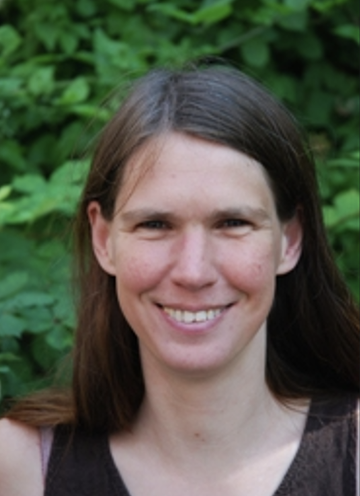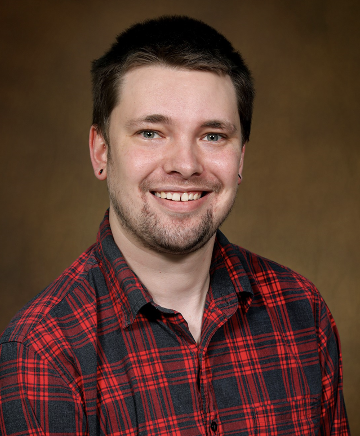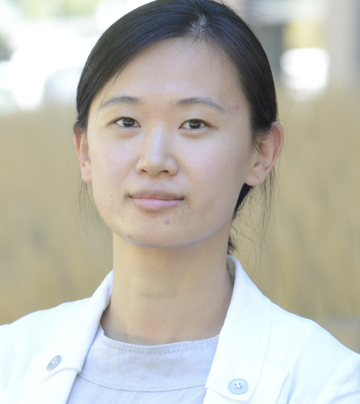Education Workshop:
Development and Evaluation of Polygenic Risk Scores for Application in Diverse Populations
This year's workshop is a half-day, interactive workshop between the IGES and ASHG annual meetings. Led by Drs. Chris Gignoux and Leslie Lange (University of Colorado Anschutz), the workshop will take place the morning of Tuesday, November 5 at the Aspen Room at The Embassy Suites Hotel.
The Workshop is open to everyone. The cost to attend is $75 US.
About the Presenters
 Chris Gignoux, Ph.D. Chris Gignoux, Ph.D.
Professor, Biomedical Informatics
Director of Research, Colorado Center for Personalized Medicine
University of Colorado – Anschutz Medical Campus
Dr. Chris Gignoux is a population geneticist by training interested primarily in the confluence of human evolution and epidemiology. Currently he is working on a range of topics from population structure and demographic inference to understanding the genomic architecture of complex traits. He is deeply interested in broadening our understanding of human biology through understanding the role of human genetic diversity across the globe, and continue to perform field work with collaborators in South Africa and across Latin America. On the methods side, he is particularly interested in applications of population genetic theory, statistical modeling, and algorithmic development to improve large-scale, trans-ethnic, and biobank studies.

Leslie Lange Ph.D.
Professor of Biomedicine (SOM)
Department of Biomedical Informatics and Epidemiology
Lifecourse Epidemiology of Adiposity & Diabetes Center
University of Colorado – Anschutz Medical Campus
Dr. Leslie Lange, PhD is a Professor of Biomedical Informatics and Epidemiology at the University of Colorado Anschutz Medical Campus. She is a genetic epidemiologist whose research focuses on the identification and characterization of genetic and omic factors associated with complex traits related to cardiovascular disease, type 2 diabetes, obesity and pulmonary disease. Dr. Lange collaborates in many large genomic-focused consortia, including the Polygenic Risk Methods in Diverse Populations (PRIMED) Consortium and the new NIDDK Type 2 Diabetes Heterogeneity Consortium. She is an investigator for the Jackson Heart Study (JHS), the Reasons for Geographic Differences in Stroke (REGARDS) study, and the Multi-Ethnic Study of Atherosclerosis (MESA), and has led or collaborated on hundreds of publications involving genomic data from these and other cohorts.
 Amke Caliebe, Ph.D. Amke Caliebe, Ph.D.
Senior Researcher
Institute of Medical Informatics and Statistics
Kiel University
Germany
Dr. Amke Caliebe studied mathematics and physics and then specialized on statistics and genetic epidemiology. Her research interests are broad, including statistical methods development, statistics for forensic genetics, stochastic modelling and statistical procedures in population genetics, statistics for ancient DNA data and precision medicine. Her current main research focus is polygenic scores (PGS). She is member of a consortium developing polygenic scores for movement disorders and has just started a project about how the genetic architecture influences the cross-ancestry transferability of PGS (both funded by the DFG – German Research Foundation). Amke is also engaged in the topic of ethical implications of clinical and genetic studies and member of the local ethics committee in Kiel as well as of the ELSI committee of IGES.
 Maizy S. Brasher Maizy S. Brasher
Professional Research Assistant
Department of Biomedical Informatics
University of Colorado – Anschutz Medical Campus
Maizy Brasher, M.A. (she/her) is an information science professional working under the joint mentorship of Dr. Joanne Cole and Dr. Chris Gignoux in the Department of Biomedical Informatics and the Colorado Center for Personalized Medicine. Maizy earned her Master’s degree in Ecology and Evolutionary Biology from the University of Colorado Boulder in 2023, where she worked at the Institute for Behavioral Genetics investigating the shared genetic architecture underlying substance use and mental health disorders. Her research focuses on using large-scale genetic data and statistical methods as tools to better understand the genetics of complex human traits, including dietary intake and metabolic health.

Iain R. Konigsberg, Ph.D.
Research Instructor
Department of Biomedical Informatics
University of Colorado – Anschutz Medical Campus
Dr. Iain Konigsberg is a computational biologist focused on integrating multi-omics with clinical and imaging data to uncover patterns and improve prediction of adverse outcomes in chronic respiratory disease. He is actively involved in several NIH-funded research consortia, including co-chairing the Population Descriptors, Ethical, and Social Implications Working Group for the NHGRI Polygenic Risk Methods in Diverse Populations (PRIMED) consortium. A 2023 TOPMed fellow, he also serves on the executive committee of the American Thoracic Society’s Section of Genetics and Genomics. His research includes contributions to GWAS and PRS studies of cardiovascular and respiratory traits.
 Christopher H. Arehart Christopher H. Arehart
PhD Student
Institute for Behavioral Genetics
University of Colorado Boulder
Chris earned a Bachelor of Science in Applied Mathematics from the University of Colorado Boulder in 2018. He then spent several years conducting bioinformatics research at the University of Colorado Anschutz Medical Campus before beginning a PhD program at the University of Colorado Boulder through the Ecology and Evolutionary Biology Department, the BioFrontiers Institute, and the Institute for Behavioral Genetics. His interdisciplinary research interests span several areas of computational biology, including infectious disease surveillance and modeling the genomic architecture of complex human traits. Chris has published research on polygenic and multi-omic predictive frameworks for allergic, autoimmune, and obesity-related diseases. He is passionate about how team science improves forward-thinking approaches to personalized medicine for diverse groups. In his free time, he enjoys playing the piano and exploring the trails of Colorado.

Meng Lin, PhD
Senior Research Instructor
Department of Biomedical Informatics
Colorado Center for Personalized Medicine
University of Colorado – Anschutz Medical Campus
Meng is a computational geneticist studying complex traits in diverse populations. Interested in topics such as genetic diversity and heritability, she works on exploring genetic architectures through the lens of statistical genetics, population genetics, and evolutionary genetics, along with relevant method development. Recently, her work has centered on evaluating polygenic risk score predictions in a wide range of health outcomes across ancestries at a biobank scale.
Preliminary Agenda
9:00 AM
Session 1: High-Level Overview (Chris Gignoux, Leslie Lange, Amke Caliebe)
- 45 minutes – Presentation (PRS, ELSI considerations)
Session 2: Genetic Effects and Polygenic Weights (Chris Arehart, Iain Konigsberg)
- 20 minutes – Presentation
- GWAS and SNP-based heritability (training datasets, trait-specific effect sizes)
- Quality control considerations (heritability, relatedness, variant-level QC)
- PRS weights (ancestry considerations, LD panels, p-value thresholding, LD clumping, beta shrinkage with LASSO regression)
- 40 minutes - Hands-on tutorial: P-value thresholding approach for estimating PRS weights from GWAS data
- 10 minutes - Break
Session 3: Score Calculations, Applications, and Considerations (Meng Lin, Maizy Brasher)
- 30 minutes – Presentation
- PRS Calculation (PRS harmonization pipeline)
- Application to prediction and key considerations (evaluation metrics, confounding)
- Resources for pipelines and tutorials
- 30 minutes – Hands-on tutorial
Wrap-Up
- 10 minutes - Key takeaways, feedback survey, 2025 topic survey
|